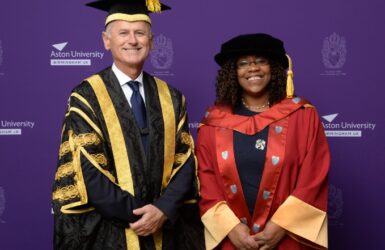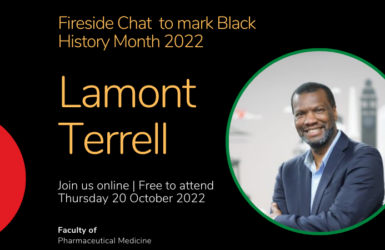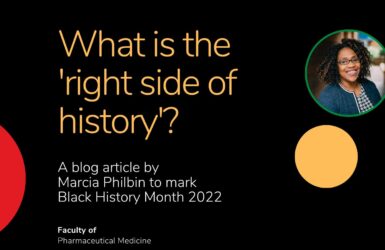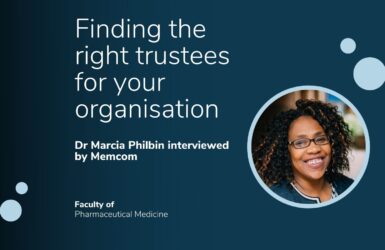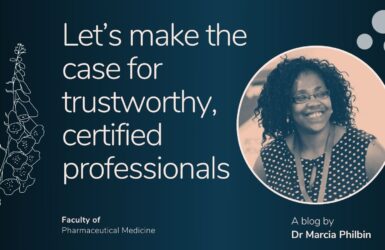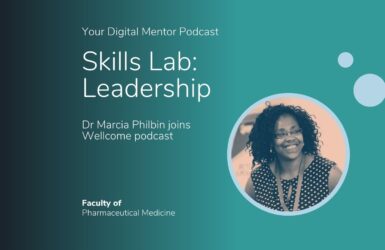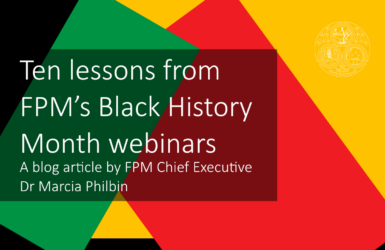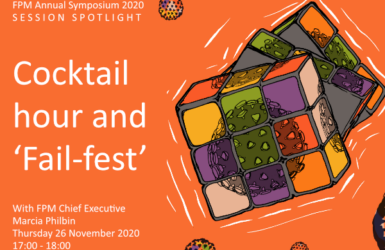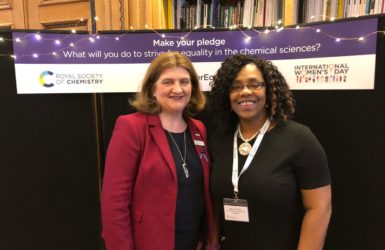Dr Marcia Philbin joins RSC Global Women’s Breakfast 2022
Posted on: Wednesday 23 February 2022
Author: Dr Marcia Philbin
On Wednesday 16 February 2022, I attended the Global Women’s Breakfast that was organised by the Royal Society of Chemistry as part of the celebrations of International Day of Women and Girls in Science, which is held each year on 11 February.
The event was held online and there were 141 delegates registered from across the world including Saudi Arabia, India, Nigeria, Canada, Columbia, Latvia, France as well as the UK. The theme for the breakfast meeting was “Women in Chemical Sciences Careers” and it was hosted by the President Elect, Professor Gill Reid who is professor of inorganic chemistry at the University of Southampton.
The inclusiveness of the event was evident as there were some men in attendance and a British Sign Language interpreter as well as live transcription which was available for those who needed the services.
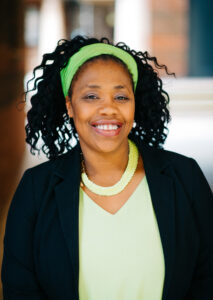
The event begun with an introduction by Professor Reid who spoke about her own career where an inspiring teacher opened her eyes to how chemistry can help us to understand the world around us. She then asked each of the panellist about their careers.
The first panellist was Dr Clara Barker, who is a transgender chemist at the Centre for Applied Superconductivity at Oxford University. Her academic journey was punctuated by absences due to health reasons, but she spoke eloquently about her journey to acceptance through transitioning to be who she was, pursuing her PhD and gaining an academic position. She spoke of the support of others who enabled her to reach her potential. She is now involved in outreach work to help aspiring scientists in the LGBTQ+ community who may not think that chemistry as a career is open to them. She spoke of a talk she gave to undergraduates and afterwards, a student approached her to say how inspired they were because they did not know that trans scientists existed. Dr Barker said that there is power in representation because at that moment, she realised she was a trailblazer and had an important role in supporting the next generation.
Celine Moreira is from Portugal who moved to the UK to pursue her scientific ambitions. She undertook a MSc in Environmental Engineering and now works for Polymateria Limited which develops a technology that chemically transforms polymers into bioavailable waxes. She reflected on the importance of building a network of people to support you, particularly when you are from a different culture and speak a different language. She also said it was important to follow your path and not what others expect you to do.
Dr Pooja Goddard spoke eloquently about her journey to complete her degree and PhD, and how she wrote to her teacher, who had told her that she would not achieve anything, about her achievements. She discussed how mentorship and seeking out allies helped her early in her career. She is now dedicated to helping others who did not think that chemistry is for them. She reflected also on the importance of self-care and importance of re-evaluating what you want your legacy to be 20 years from now.
So, what are my reflections of the event?
Everything that Dr Goddard said resonated with my own experience, though I did not bother writing to my unsupportive teachers! I was certainly inspired by all the speakers, especially Dr Barker who has had to endure so much in order to get to a place of acceptance. I recognised the feelings of being an outsider, not belonging and feeling like an imposter, which were rampant in my early career.
All three panellists reflected on how being members of the Royal Society of Chemistry has helped them to broaden their networks, opened opportunities to support early career chemists as well as take part in events to inspire the next generation.
The one thing that stood out for me was when Dr Barker said “I thought it was only me who had imposter syndrome”. It was clear from the ensuing conversation that we all suffer from that to some degree and you realised the prevalence that many of us still feel like we are outsiders. So, Professor Reid asked each of the panellists “what does belonging look like in the chemical sciences?” and the responses were as follows:
- When you see different people, you see your story so representation matters.
- When opportunities arrive, give feedback that reinforces self-worth and that the person matters
- Be seen, be heard and be valued
The Royal Society of Chemistry has produced a report called “A sense of belonging in the chemical sciences”1 and I hope that the lessons identified will influence the EDI work in FPM, so that all our members know they belong and are valued for who they are.
More from Marcia
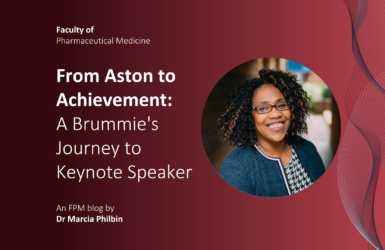
From Aston to Achievement: A Brummie’s Journey to Keynote Speaker
Our Chief Executive Dr Marcia Philbin reflects on a recent trip to her alma mater
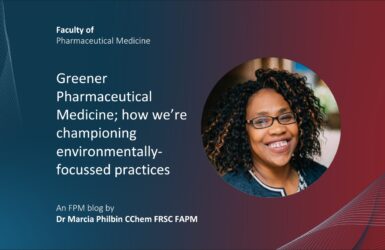
Greener Pharmaceutical Medicine; how we’re championing environmentally-focussed practices
Blog by our Chief Executive, Dr Marcia Philbin.
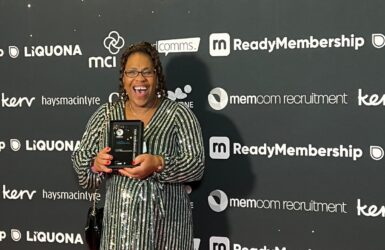
Marcia wins Memcom award!
From October 2022
Our Chief Executive was bestowed a highly commended award in the CEO Leadership category
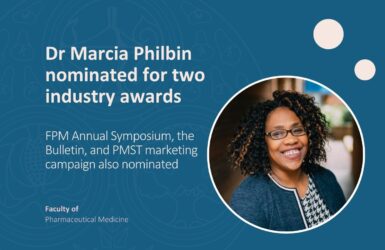
Marcia Philbin nominated for two industry awards
Annual Symposium, PMST marketing and FPM bulletin also receive recognition

Dr Marcia Philbin joins RSC Global Women’s Breakfast 2022
Marcia attends the Global Women’s Breakfast organised by the Royal Society of Chemistry as part of the celebrations of International Day of Women and Girls in Science
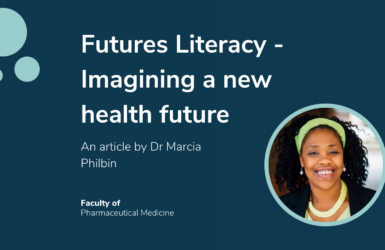
Latest article from Marica Philbin: ‘Futures Literacy – Imagining a new health future’
Read the article now

A festive greeting to our members, from Flic and Marcia
Christmas message from our President and Chief Executive
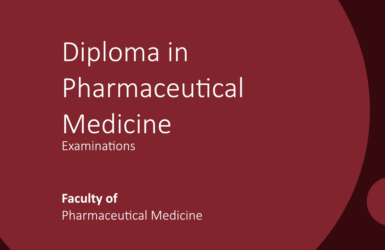
Good luck to candidates sitting the DPM Part 2!
Sam Baglioni and Marcia Philbin have recorded a video message.
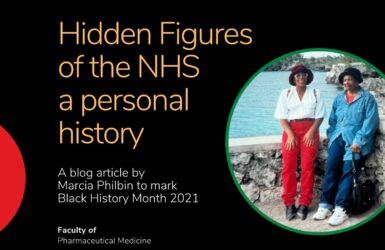
Hidden Figures of the NHS – A personal history
Blog article by our Chief Executive Dr Marcia Philbin
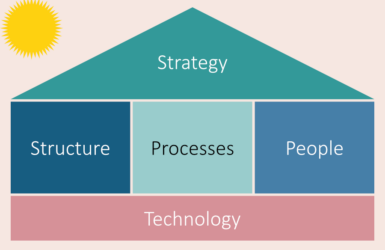
FPM’s Journey to The Undiscovered Country
Our Chief Executive Dr Marcia Philbin celebrates two years in post

